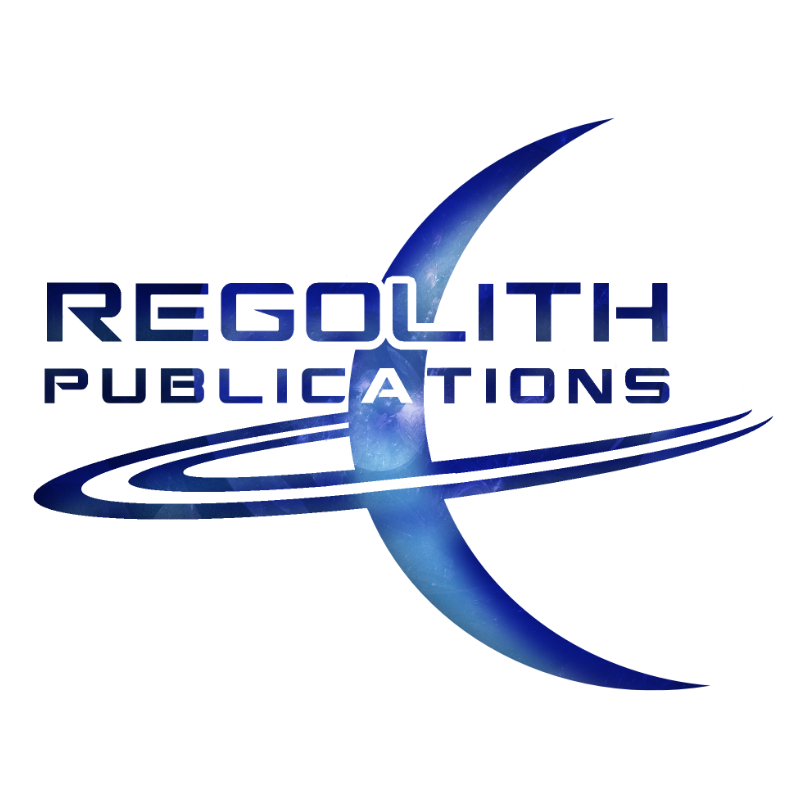|
Spoilers ***Spoiler Alert*** Spoilers
Is Star Wars The Force Awakens too similar to Star Wars Episode 4? In short, no. Suffice to say, anyone who has watched The Force Awakens (TFA) should know that it's not very similar at all to Episode 4 (A New Hope). Even so, I was told by a couple of my friends -- who I know to be ardent Star Wars fans -- that it was. This baffled me, because these are guys, I felt, should know better. What were they seeing that I wasn't? Or what was I seeing that they weren't? Several things. But before I get into it, let me just say that I probably wouldn't feel compelled to knock down, drag out, and beat this dead horse senseless if it simply wasn't the number one complaint about why people didn't enjoy The Force Awakens as much. But I think they are making some very critical errors in their assessment here. In fact, they should be praising TFA for its originality and how much it changes in terms of the tired, worn out themes of Star Wars! But instead all I hear is complaints. And it really gets under my skin. First off, let me preface this with the fact that I don't actually think anyone who doesn't like the film is an idiot (since, you know, I may have said some things in a few of my online rants elsewhere that may have made it sound like I think everyone who disagrees with me is an idiot). You're fine to not like The Force Awakens and we'll just have to agree to disagree. What I cannot tolerate, however, are people using the *excuse that The Force Awakens is too similar to Episode 4 as the reason they didn't enjoy it. This is an invalid, not to mention illogical complaint, for reasons which will be made clear very shortly. But, hey, if you didn't like it, well, you didn't like it, and that's pretty much all there is to it. But it happens to be my favorite of all the Star Wars movies -- mainly for the reasons I will discuss below. That said, I must explain why saying TFA is too similar to Episode 4 is a poor criticism -- if not absolutely the worst one you could make about a Star Wars movie. Now, just to clarify, who am I to tell you that you're wrong about The Force Awakens being too similar or not to Episode 4? Some random Inernet dude? Well, basically. Yeah. And that should be good enough for you if my arguments are sound, which I think they are. If they're not, feel free to leave a comment in the comments section after the post explaining where I got it wrong. The question you are likely asking yourselves is why on earth should what I have to say about it make any difference to you? Well, I don't expect it to make a whole lot of difference if your mind is made up about how disappointed you felt watching Star Wars TFA, but maybe I can diminish that disappointment somewhat by giving you something to think about which you may not have necessarily considered before. As someone who is a professional writer who has seen his work appear both in television and print, and as an author of science fiction and fantasy genres myself, I think I might have thought about what sets a story apart in terms of plot and character a little bit more than, say, your average movie goer. But like I said, feel free to disagree. At any rate, I'm going to flat out say it -- The Force Awakens is NOT too much like Episode 4. In fact, it's not very much like Episode 4 at all. But it is like other Star Wars movies -- at least in part. And that's fine, since this has been an intentional design regarding all of the Star Wars films. Yet The Force Awakens is something fresh and new, and it might just have what it takes to revitalize the entire Star Wars franchise. Just as certain as it is a great and entertaining action adventure story, it is also quite original. Contrary to the majority criticism, it's not a carbon copy. It's not a remake. At best it's a soft reboot of the franchise built in and around the previous films. But that's not technically what people mean when they claim it is too much like Episode 4. What they mean is, and I'm paraphrasing one of my friends who summed up the criticism quite succinctly, that
Others have added that in the movie -- and yes, minor spoiler alert -- they hide the map inside BB-8, a droid just like in the original Star Wars. And that there is a big space battle where they blow up a death star via a trench run right at the end of the film. So let's add these to the list, shall we?
And instead of saying they had a similar wardrobe, which is to say the production design deliberately made everything look exactly like Star Wars (since it is Star Wars), let's say they visited all the same old planets -- making the alien world cliche of desert, ice, forest planet trope found in the other films. All things tallied up, we have a total of six things that are sort of like Star Wars Episode 4. I say sort of like Episode 4, because on closer inspection we shall find that they're not actually all that similar. In Return of the Jedi they blow up a Death Star too. So if anything, the blowing up the Death Star of the week is redundant of The Force Awakens, but we cannot say it's unoriginal specifically *because it copied Episode 4. Episode 4 isn't the only film with a Death Star that blows up. It also copied Episode 6. Not liking it for this reason, however, doesn't make logical sense. It would be a lot like saying Episode 7 is unoriginal because a Tie Fighter blew up just like in Episode 4, ignoring all the other times Tie Fighters blew up in the series. Spaceships blowing up is simply what happens -- a lot apparently -- in Star Wars films. Death Stars too. So unless Episode 4 is the ONLY Star Wars movie in which a Death Star is blown to smithereens, then it's an invalid criticism to say Episode 7 is copying 4 because they both happen to have Death Stars while ignoring the other films with Death Stars (e.g., Episodes 3, 4, & 6), or specifically Death Stars which blow up (Episodes 4, 6, & 7). So really the criticism is either Star Wars is too much like Star Wars, which makes zero sense, or that I don't like watching Death Stars blow up every other episode. And that's fine. That might even be a valid criticism, but it's not a comment about the similarity between the films but rather a familiarity of certain events which unfold within the films, a distinction which seems to be lost on most people. If similarity was the problem, people would be complaining about the Death Stars never changing form or function rather than there being more Death Stars. See what I mean? And I've actually heard the complaint both ways. But if you watch TFA closely, I think you'll find that the Death Stars are evolving in interesting ways too. Starkiller is much more menacing than any tired ole death star, but the pace of the film is so fast that they never really linger on this feeling of dread for what Starkiller is capable of -- and, well, that's my complaint. So similarity of the films for having Death Stars featured in them is not the big issue here. Familiarity is. We are familiar with Death Stars. We know their purpose. We know that if one shows up it will likely blow up some planets and shit before getting blown up in turn. Same old, same old worn out thing. But not brcause the films are the same, but because they both use familiar plot devices. Which, again, is a basic feature of Star Wars storytelling. It does that. As for BB-8 hiding the map -- this makes sense from a story perspective. Just as in the first Star Wars film, Princess Leia hides the Death Star plans in R2-D2 knowing that her ship was being boarded by Vader -- the Dark Lord of the Sith -- who can rip her thoughts right out of her mind. Best to hide the plans in a droid then send it down on to a planet. I'm assuming R2-D2 can jam long range censors -- as he did in the prequels -- making it so he cannot be easily found except by boots on the ground -- hence these are not the droids you're looking for. Additionally, in Episode II The Clone Wars when Obi Wan sends the message about the clone facility to the Jedi council he is too far out of range for the transmission to go through, so he does a deep scan and finds that Anakin and Padme have returned to Tattooine for unkown reasons. R2-D2 picks up Obi Wan's message and holds on to it until he can take it to our heroes, who decided to go rescue Obi Wan, who has been captured by Count Duku. So droids holding messages or secret information seems to be a common thing in the Star Wars universe. And it makes sense that Poe Dameron hid the map inside BB-8 for the exact same reason that Princess Leia did with R2. He knew it would be safer in a droid which cannot have its mind read and which can jam enemy scans. By now this is standard procedure for securing highly sensitive data, it is canon, and should be considered as such. Complaining about droids carrying messages makes a person seem like -- well -- not a Star Wars fan. It's such a mundane complaint as to sound silly. It's like being angry because light sabers come in different colors. How do they get all those different colors? I'm furious! It's a rather strange thing to get worked up about. Or, we could be reasonable and say it is well established in the canon of Star Wars that light sabers can be different colors and just accept that fact, just as it has been well established that droids can carry and safeguard sensitive information and just accept that fact. But I will grant the Death Star of the week thing as being somewhat gimmicky, although not entirely unexpected. But I doubt that's reason enough to hate The Force Awakens as much as it seems people do when they level the criticism that it's too much the same as Episode 4. And, yes, Episode 4 had a Death Star and a droid carrying a message first, so you could say this is a similarity to Ep4, but then you would also have to admit it is also a similarity it shares with the other Star Wars films as well lest you fail to meet the burden of proof. Continuing on, the criticism that Luke = Obi Wan simply doesn't make sense to me. First of all, the fact that Luke has gone into hiding means he is simply following in the footsteps of his teachers before him. But Obi Wan isn't the only Jedi who went into hiding. In Episode 5, The Empire Strikes back, we learn that master Yoda is also in hiding. Luke seeks him out to further his training as a Jedi. So, from a storytelling point of view, it makes perfect sense that Luke would do what he learned to do by way of example -- following after both Obi Wan and master Yoda. Again, the only reason the Luke = Obi Wan criticism could be valid is if there wasn't another master Jedi hiding on some distant world somewhere in the Star Wars films, which there is. So to say that Episode 7 is too much like Episode 4 because it adheres to the monastic mentality of the Jedi is not a valid complaint either, sorry to say. Apparently hiding when the going gets tough is what master Jedi likes to do (they are an endangered species after all). I think what fans are getting hung up on here is Luke's beard. Oh, he has a beard! Well, then... he's just an Obi Wan wannabe. See, the same! Oh, shut up. Face it, that's a lame duck comparison at best and you know it. So let me stress further how The Force Awakens is nothing like Episode 4. Let's talk about female characters. Excluding the Clone Wars animated series (which totally is canon, btw) -- and focusing on only the main films in the series -- in the original trilogy the only female character with any story or character development is Princess Leia. In the prequel films the only female character with any story or character development is Padme, who we all know turns out to be Leia's mother. And even then, these two are not the main protagonists of the series but supporting characters. They are woefully underdeveloped (which is why Ahsoka Tano remains my favorite female heroine in all the Star Wars canon). Yet in The Force Awakens our main lead, Rey, is a woman! Then you have old General Leia, who has a substantial role in the film, including further character development (albeit not much of a story arc this time around). And then you have Captain Phasma, a high-ranking woman Stormtrooper, and although she was underused, she still played an important role in the story of Fin -- and stil has the potential to become a great female character. Hopefully they don't keep her a faceless female character (an entirely different problem). Whereas the original trilogy and the prequels only had one female character each, and pretty much the same character at that (the quintessential damsel in distress), in The Force Awakens you have a battle hardened General Leia, you have a cunning and ruthless Captain Phasma, and you have a self reliant, can take care of herself, strong female protagonist in Rey -- who breaks the damsel in distress rule making her the very best female character in any Star Wars film to date (if we're not counting Ahsoka Tano -- who is still my personal favorite). So far, it doesn't seem like The Force Awakens is anything like Episode 4. There is no damsel in distress this time around. But like I said, I'm going to hammer the nail down and crucify that weaselly complaint -- of TFA not being original enough. Let's consider the main plot and the sub-plots which thread together, usually in the second act. Let's just call it Plot A and Plot B. In Star Wars Episode I: The Phantom Menace, our Plot A involves an orphan boy who is a slave. Our plot B is about a princess in distress who calls upon the Jedi, including Obi Wan Kenobi, for help. In Star Wars Episode 4: A New Hope, our Plot A involves an orphan farm boy (not a slave). Our Plot B involves a princess in distress who calls upon Obi Wan Kenobi, a Jedi, for help just as her mother did. In Star Wars Episode 7: The Force Awakens, our Plot A involves an orphan girl who is a slave (note that this is a parallel to Anakin's story -- not Luke's -- hence it's not Episode 4 we could even make the comparison with in the first place). Our Plot B involves a Stormtrooper going AWOL and defecting from the ranks of The First Order and then teaming up with our heroine, thereby helping one another to escape one precarious situation after the next. Whoa there! What parts of Episodes 1 and 4 were about an AWOL Stormtrooper? Which parts of Episode 7 were about Rey calling upon the Jedi for help? None. You want to know why? BECAUSE THEY'RE NOT THE SAME STORY. Now, there may be other criticisms lobbied at The Force Awakens. It has its share of fridge logic, for sure. Some people felt that Kylo Ren was a whinny bitch-face. Others liked that about him because, once again -- to stress the point, it made him unique when compared to the bland faceless villains of the Star Wars films (i.e. Boba Fett, Darth Vader, Captain Phasma). It appears people complaining about Kylo Ren have forgotten (or blocked out due to trauma) teenage Anakin in The Clone Wars and Revenge of the Sith who, in my estimation, is a much more obnoxious and whinny bitch-face (and not at all the multifaceted and fascinating character study that Anakin was in the Clone Wars animated series). But that's just my opinion. Speaking of the prequels, I've always wondered if people almost universally pan them and deride them as terrible films partially because of an underlying psychological response to these film's reversal of audience expectations? I mean, we're accustomed to the heroes winning. In the original trilogy the heroes win at the end of the films, with the exception of Empire, in which it's a too be continued open-ended narrative. In the prequels, however, at the end of each film our heroes fail miserably and the villains win. Meanwhile, our heroes are forced to retreat and count their losses, dealing with it the best they can. I've always felt that deep down this bothers people about the prequels without them even realizing it. As far as films go though, they're highly entertaining (although not without their fair share of faults), especially if you don't bring any preconceptions to table about what a Star Wars movie is or isn't. Just a thought I had. But coming back to The Force Awakens, notice that the end is basically a draw--a stalemate between the forces of good and evil. It's the first time where there was no clear winner or loser between the good guys and the bad guys. Kylo Ren and Rey are interrupted by events out of their control and then get separated. So even the ending is different! (Note: the exception here is Empire, but Empire ends after the climax at Cloud City while The Force Awakens ends mid-climax). So what have we learned here? Mainly that the criticisms traditionally given for why The Force Awakens is too much like Episode 4 simply are not valid criticisms. Mainly because they are arbitrary, ignore other plot points and events in the story that do the exact same thing in other Star Wars films, and which usually aren't following the same narrative path -- as TFA often takes things in a completely different direction. That's one of the things I felt was brilliant about The Force Awakens though. It sets it up so you think it will play out like Star Wars Episode 4 but then takes it in an entirely new direction, or puts an unseen twist on things. Are you really going to tell me you saw it coming that C-3PO had a red arm? Yeah, right. More to the point, however, did you really find it predictable that Han Solo would die at the end? If so, maybe you felt it was too similar to Qui Gon's death? Or Obi Wan's? Or Yoda's? Or Vader's? It doesn't really matter -- whose death you feel it most closely resembles, because the truth is it's not like any of them. Granted, Han's Death scene plays on the father / son trope that all the films seem, to one degree or another, be about. But it's perhaps a smarter death scene than many critics are even aware of. Allow me to explain. The Kylo Ren and Han Solo death scene is a complete inversion of the Luke Skywalker and Darth Vader scene at the end of Return of the Jedi. Whereas in Jedi we had Luke, the son, help turn Vader, the father, to good, the reverse occurs in TFA. Han, the father, helps Ben aka Kylo Ren, the son, complete his journey to the Dark Side. In Jedi we have Vader, the father, save his son's life. In The Force Awakens you have Kylo Rend, the son, kill his father. They are mirrored reflections of one another, but one of the reflections is wrongside up. The reason for this is clear, or at least it should be. The events are cyclical, something that is core to the Star Wars films and canon. And that, folks, is goddamn brilliant storytelling. Oh, and for what it's worth, doing a complete inversion of a theme is not doing the exact same thing as the theme -- it's doing something completely new and original with that theme. And that's why The Force Awakens is nothing like Star Wars Episode 4. Whenever you feel the filmakers are being too liberal with their borrowing of time honored Star Wars tropes, suddenly they spin it in an entirely new direction (well, most of the time anyway, if you discount Death Stars of the week). Rather, Ep7 is like all of the Star Wars films to come before it, yet original enough to be its own thing -- just as any great Star Wars film should be. Star Wars is cinematic poetry. It mirrors itself, it uses the same themes, it follows events in chronological order, often beat for beat, and with all these competing forces at work (pun intended) there is a fine balance to be found. So while you could say Rey has her vision when she descends into the catacombs of the old ruins and after touching the light saber which is SIMILAR to Luke having his vision after descending into the cave and beholding Darth Vader in the mouth of the cave and might be inclined to cry foul and say that The Force Awakens is too much like The Empire Strikes Back, because it shares a similar scene, the rest of us recall our Joseph Campbell, Hero With a Thousand Faces, and realize that this is part of the hero's journey. Personally, I was more than pleased that The Force Awakens fits so well into the established Star Wars mythos and universe. I think it found a nice balance of old and new while spinning things in new directions while sticking with familiar patterns of what works. I'm not saying it's 100% original -- but it tries a lot of new things while staying true to Star Wars. The Force Awakens is quite literally the film Star Wars fans have waiting for since they fell in love with the original trilogy. To not like it because it maintains the same meter while adhering to the same aesthetic of a much grander poetic narrative, blending equal parts space opera with ancient mythology, seems to be nitpicky in my opinion. If you still feel that TFA is too much like Episode 4, whether it is plot structure or similar themes, familiar character types, or too many Death Stars blowing up, I'm sorry, but I don't know what to tell you -- that's the nature of Star Wars. If you wanted to see a novel space adventure film -- go watch Ridley Scott's The Martian. I promise you, you won't be disappointed. But if you want a fun Star Wars film that is true to everything that is Star Wars, then The Force Awakens is everything we Star Wars fans could have hoped for and more. *Drops mic. Walks out.
0 Comments
Leave a Reply. |
Tristan VickBy day I am an educator and a cultural ambassador. By night I entertain notions of being a literary master. In reality I am just a family man and ordinary guy who works hard and loves writing just about as much as I love my family. Just about. AVAILABLE NOWNEWSLETTER
|
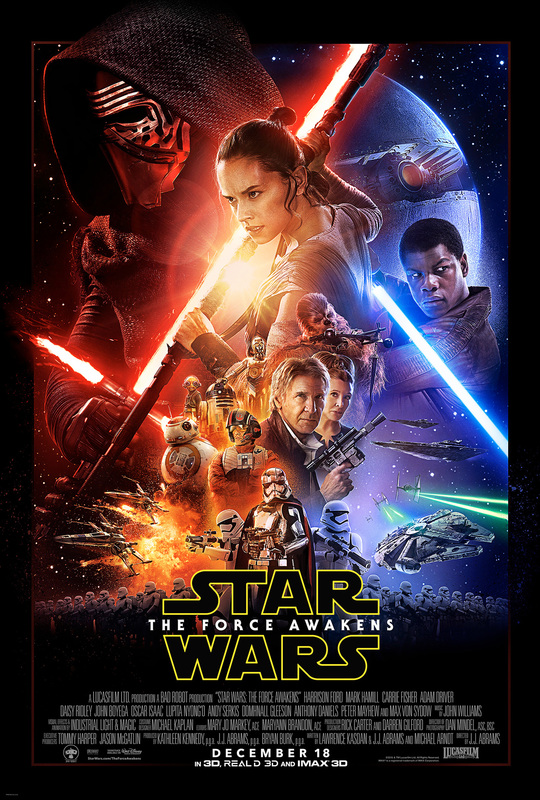
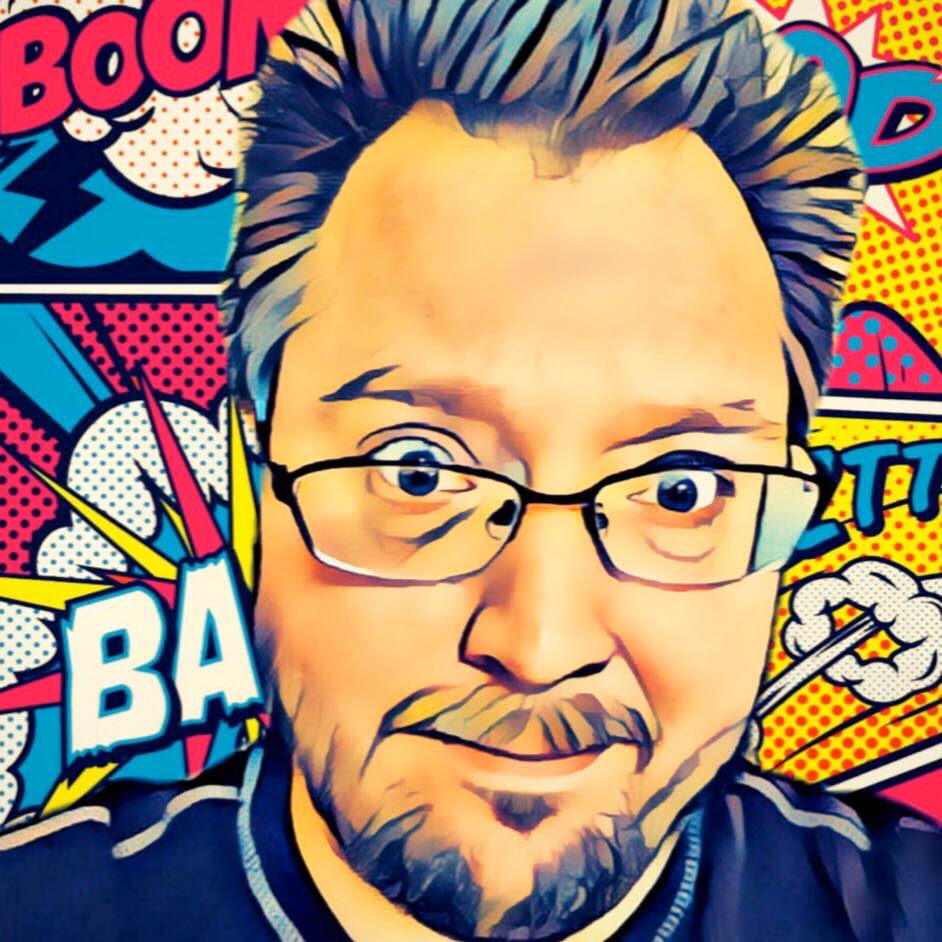
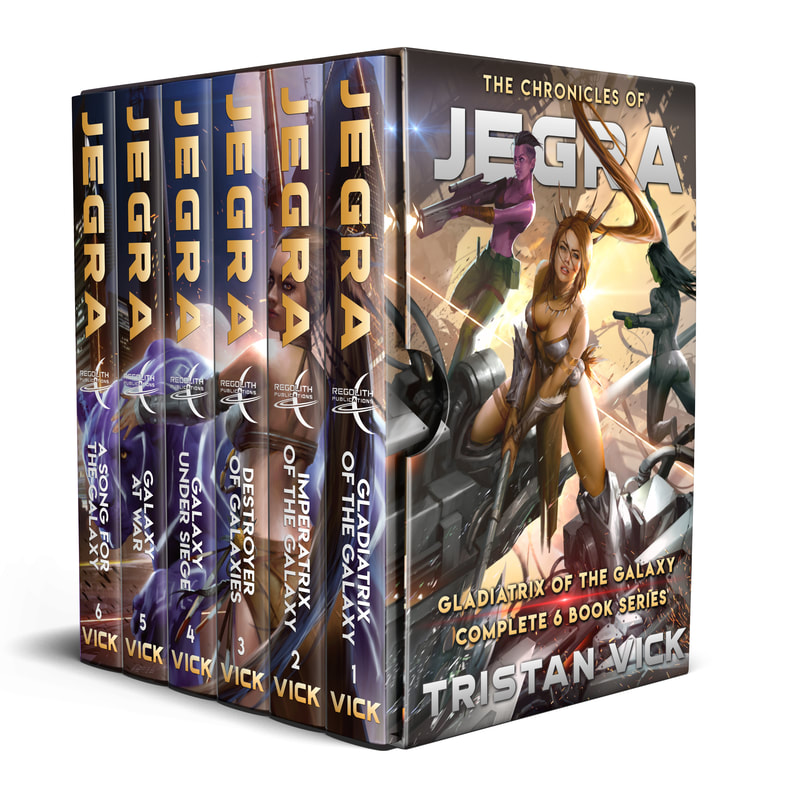
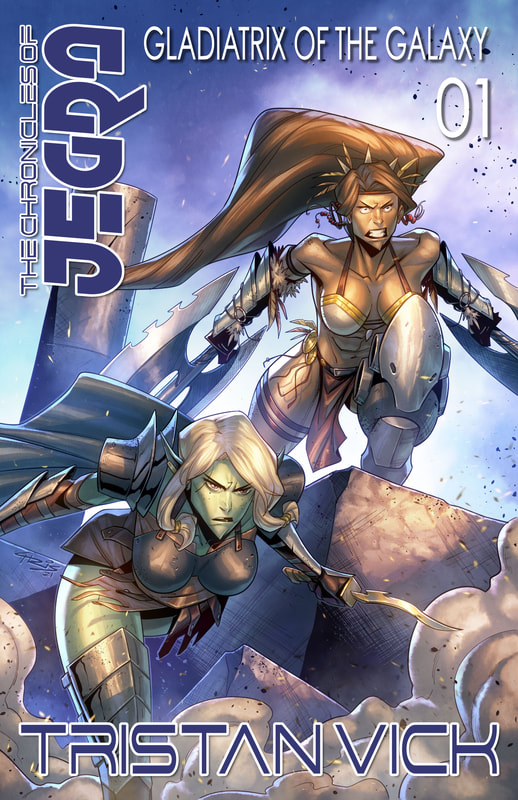
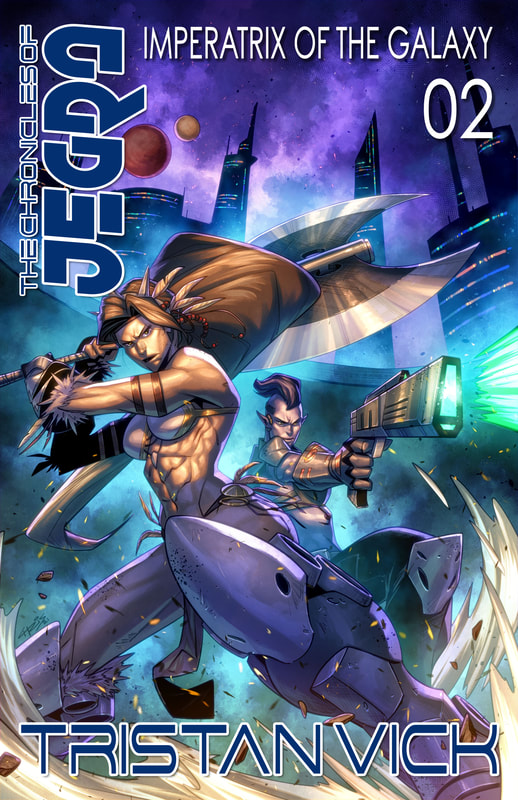
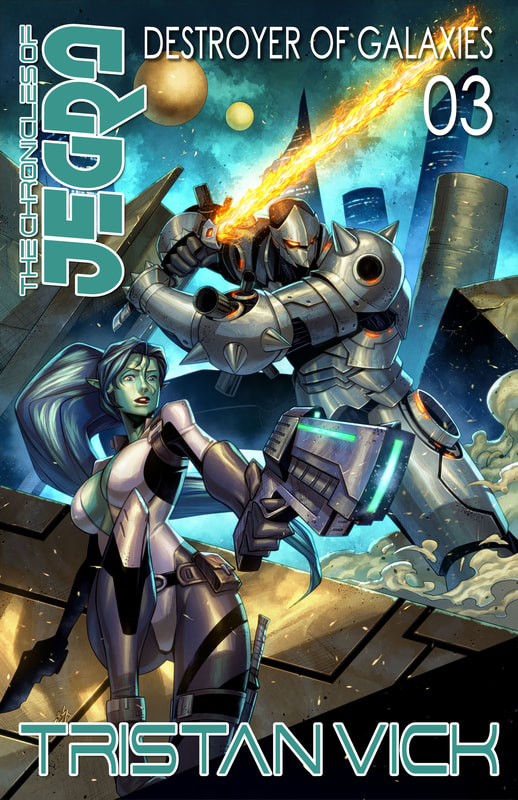
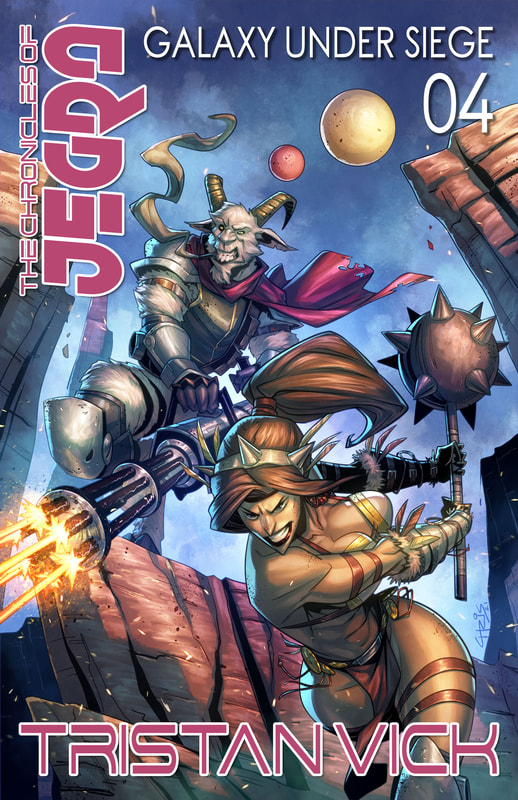
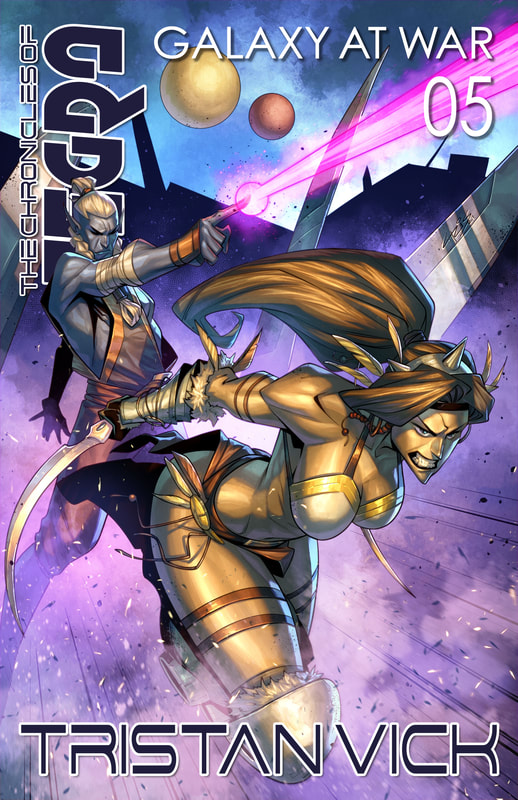
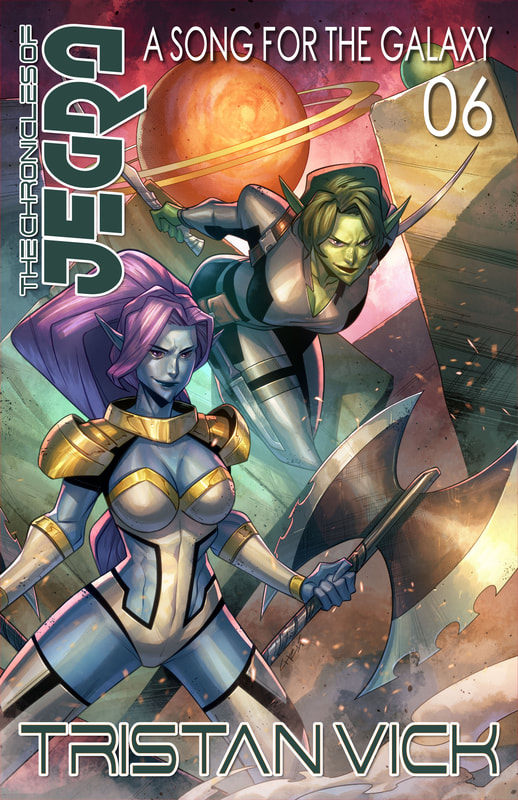
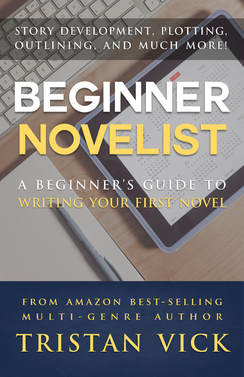
 RSS Feed
RSS Feed
